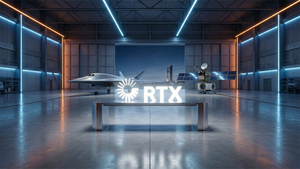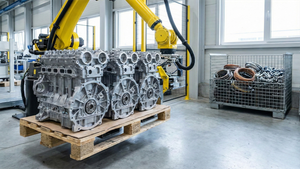NASA awarded Xwing, Inc. a contract to develop safety cases supporting increasingly-autonomous aviation design and operations. Led by NASA's System-Wide Safety Project, this will create a safety management system that enables routine flight for increasingly-autonomous vehicles and ground systems.
“NASA focuses its research and technology transfers to have real impact, and this will help NASA understand the real-world challenges that industry is facing,” said Misty Davies, NASA System-Wide Safety (SWS) Project Manager. “Emerging aviation relies heavily on advanced automation to ensure safety, and Xwing is working to bring novel, safe aviation opportunities to the American public.”
Based in San Francisco, Xwing is an autonomous aviation company who back in early 2021 demonstrated the first fully automated gate to gate operation of a Cessna Caravan aircraft retrofitted with their technology. Today Xwing is also a large Part 135 air carrier with unmodified aircraft, who recently announced their fleet expansion to now operate over 400 weekly flights of routine cargo operations for logistics leader UPS.
The contract with NASA will allow Xwing to share critical flight and ground operations data obtained from their operations in the National Airspace System (NAS), representative algorithms, and subject matter expertise on the design and execution of the systems. NASA's SWS researchers will use this information to validate and evaluate safety management systems for increasingly-autonomous aviation operations and evaluate the risks of emerging Advanced Air Mobility (AAM) operations. NASA SWS will provide information and tools for the evaluation of algorithms and operational data, safety analysis and assessment, safety management systems, and risk analysis and prognostics.
Xwing data, including emergency procedures, airspace communications, and infrastructure needs, will also aid NASA AAM research to build new infrastructure standards, pilot/operator certification standards, and other standards.
“Our team is excited to support this critical work at NASA to ensure autonomous systems are safely able to operate in the NAS. Both the data we provide to NASA and data we receive will enable us each to advance our capabilities and build a more robust safety case for the technology,” said Jesse Kallman, VP of Commercialization & Strategy at Xwing.
The three-year contract aims to:
-
identify risks and hazards and evaluate safety arguments related to runway detection and identification for vision-based landing
-
apply knowledge gained during the data collection and analysis to evaluate techniques and assurance processes related to aircraft localization and Global Positioning System (GPS) enhancement
For information about NASA's System-Wide Safety Project, visit:
https://www.nasa.gov/aeroresearch/programs/aosp/sws
About Xwing
Xwing is the first company to introduce autonomous technology on a regional air cargo aircraft. With the goal of meeting growing unmet logistics demand, Xwing's human-operated software stack seamlessly integrates with existing aircraft to enable regional pilotless flight. The company is headquartered in San Francisco, CA. To learn more, please visit xwing.com. For media inquiries, email xwing@vsc.co.
— WebWireID295416 —





